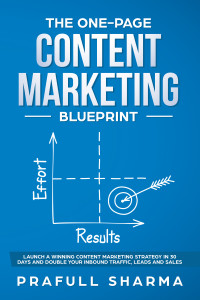What’s the future for White Papers? What vehicles are replacing White Papers for thought leadership content?
A lot of marketers would probably say that white papers are dead. I personally disagree. I think white papers continue to offer value for businesses, especially when executed well. They can help establish your credibility as a brand, help generate new leads, and boost your company’s reputation as a thought leader.
So, for naysayers who are implying that white papers aren’t worth writing anymore, consider the following:
1. eBooks Are Not a Replacement for the White Paper
eBooks are a newer approach to content marketing. They’re designed to be written in a more approachable way, which works to engage the average reader. However, they have a completely different objective than white papers.
While eBooks are designed to provide a guide and offer a relatable “how-to” approach for a specific topic, white papers are meant to offer an in-depth study of the subject matter. White papers are also usually used in the later stages of the buying cycle, while eBooks are offered earlier. Even their audience is typically different—eBooks target consumers, while white papers generally attempt to engage the B2B market.
Comparing them is like comparing apples to oranges and it would be a mistake to assume that the future of white papers hinges on the popularity of eBooks.
2. White Papers Continue to Be a Great Lead Generator
White papers have long been considered an effective way to generate leads. It’s a tried and tested method that allows businesses to collect customer information, owing to the fact that the intensive research and data white papers offer is considered highly valuable. In fact, according to one study, 76% of buyers have shown that they’re willing to share information in exchange for white papers.
3. It’s Still an Effective Way to Build Thought Leadership
Thought leadership in your industry is important for brand credibility. When your brand is perceived as more credible, customers view you as more trustworthy. This, in turn, will translate to prospects purchasing your product or service.
The groundwork for becoming a thought leader is anchored in creating content that establishes your company as an authority—which white papers can do.
White papers are by no means the only kind of content that can help you build thought leadership. However, to answer your second question, there are other forms of content that could complement and supplement your efforts to build brand trust and credibility.
For example, traditional blog posts, when distributed through the right channels, can establish your company as a hub for thought leadership. Participating actively in forums and engaging with readers and followers is also a great way to create rapport and brand trust online. Even social media can work to build up your reputation as a thought leader in your industry. If you have the resources to do so, hosting podcasts and webinars are also great ways to educate your audience and share your knowledge and expertise.
Hope my answer helps! If you have any questions, please feel free to leave me a message below or send me an email via Leadspanda.
Share This Story
Get the latest growth ideas, strategies, and best practices delivered to your inbox.
Quick read that helps 7000+ subscribers.





